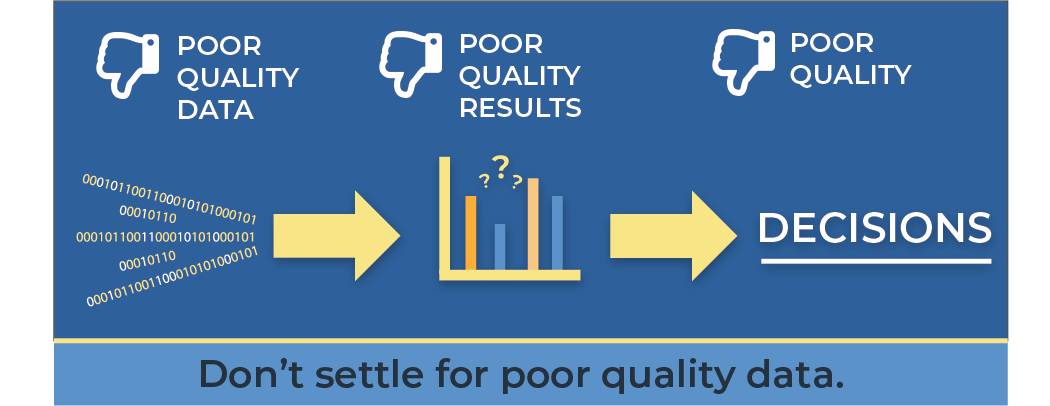
Data analysis is a critical part of any business strategy, but it's only as good as the data being analyzed. Poor data quality can result in inaccurate insights and flawed decision-making. In this article, we'll explore the importance of data quality in effective data analysis.
What is Data Quality?
Data quality refers to the accuracy, completeness, and reliability of data. High-quality data is essential for effective data analysis, as inaccurate or incomplete data can lead to incorrect conclusions and flawed decision-making.
The Impact of Poor Data Quality
Poor data quality can have a range of negative impacts on businesses, including:
- Inaccurate Insights
When data is inaccurate or incomplete, the insights derived from that data are also likely to be inaccurate. This can lead to flawed decision-making and missed opportunities.
- Increased Costs
Poor data quality can result in increased costs for businesses. This can include the cost of correcting errors, as well as the cost of missed opportunities or incorrect decision-making.
- Decreased Efficiency
Poor data quality can also result in decreased efficiency, as employees may need to spend more time correcting errors or searching for accurate data.
Ensuring Data Quality
Ensuring data quality is essential for effective data analysis. Here are some of the key steps businesses can take to ensure data quality:
- Data Cleaning
Data cleaning involves identifying and correcting errors in data. This can include removing duplicate data, correcting misspellings, and filling in missing data.
- Standardization
Standardizing data involves ensuring that data is consistent across different sources and formats. This can involve standardizing names, addresses, and other data elements.
- Validation
Data validation involves verifying the accuracy of data. This can involve comparing data against known sources or performing statistical analysis to identify outliers or anomalies.
- Documentation
Documenting data is essential for ensuring data quality. This can include documenting the source of the data, the date it was collected, and any transformations or manipulations that were performed on the data.
The Benefits of High-Quality Data
High-quality data is essential for effective data analysis, but it also has a range of other benefits for businesses:
- Improved Decision-Making
High-quality data enables businesses to make more informed decisions based on accurate insights. This can lead to better outcomes and increased profitability.
- Increased Efficiency
High-quality data can also increase efficiency by reducing the need for manual data cleaning or correction.
- Improved Customer Experience
High-quality data can help businesses to better understand their customers and their needs, leading to a better customer experience and increased customer loyalty.
- Competitive Advantage
High-quality data can provide businesses with a competitive advantage. By making more informed decisions based on accurate insights, businesses can outmaneuver their competitors and drive growth and success.
Conclusion
Data quality is essential for effective data analysis. By ensuring that data is accurate, complete, and reliable, businesses can make more informed decisions based on accurate insights. This can lead to improved efficiency, increased customer loyalty, and a competitive advantage in the marketplace.